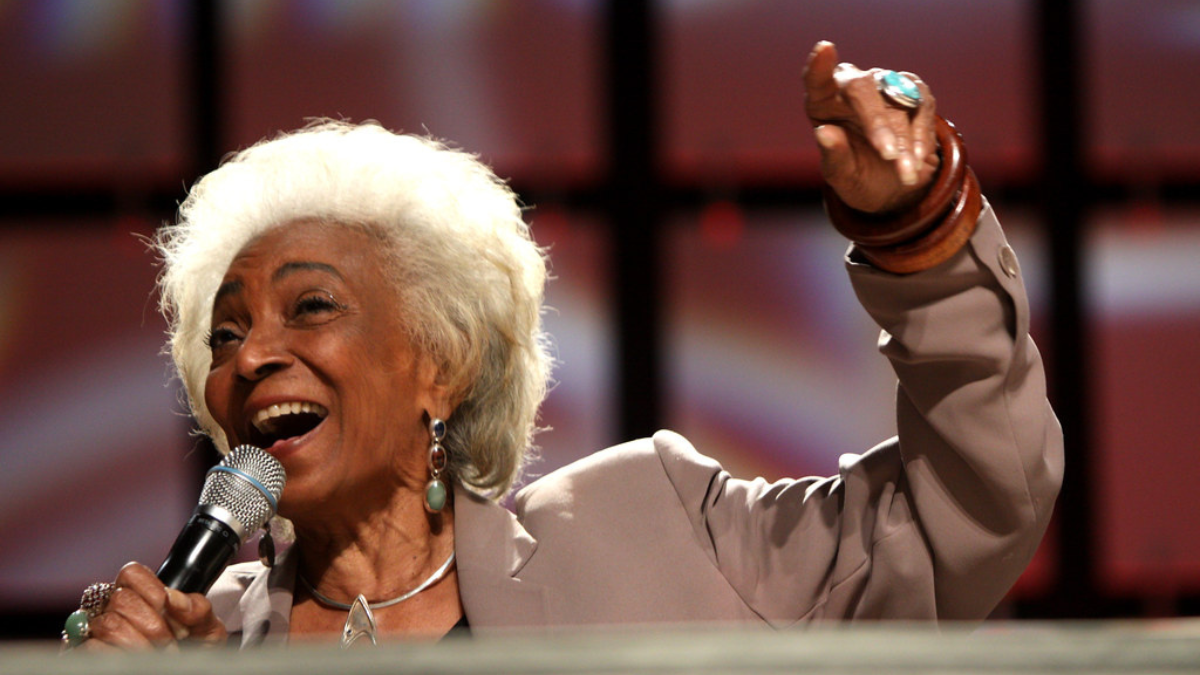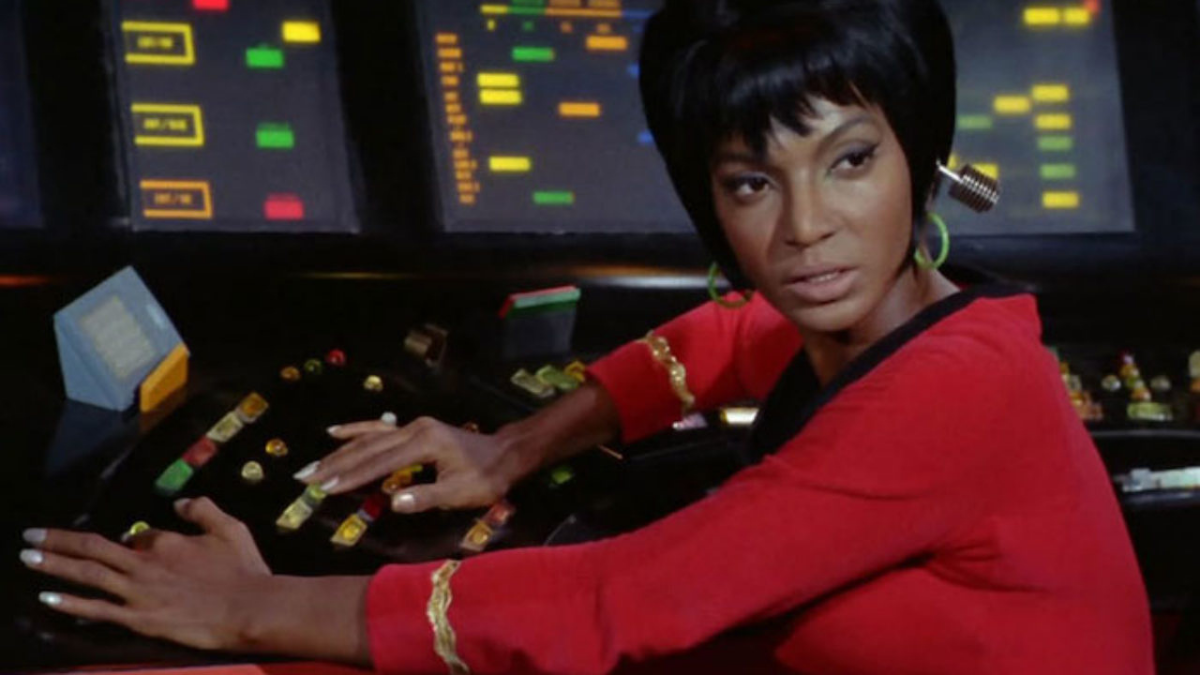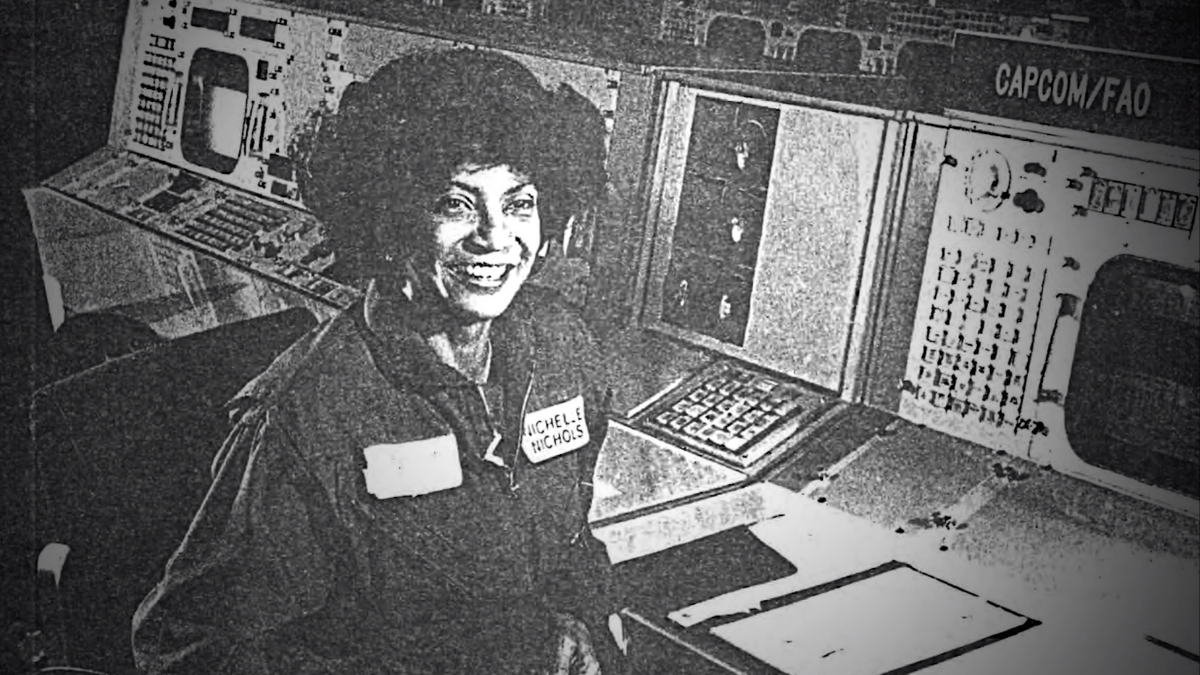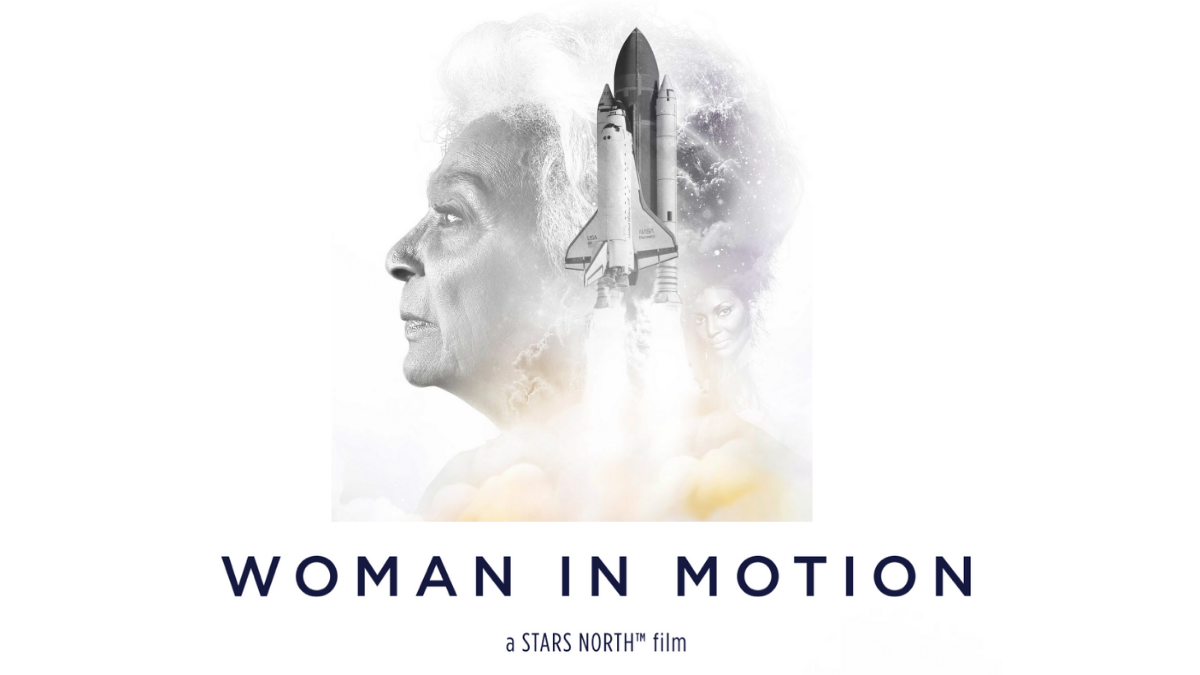Iconic Star Trek actress and space advocate Nichelle Nichols dies at 89

"Nichelle Nichols" by Gage Skidmore is licensed under CC BY-SA 2.0.
JULY 31, 2022 - Every Star Trek fans knows who Nichelle Nichols was. She was the first black woman to be seen on the bridge of a starship; she had a knockout singing voice; and she was instrumental in getting women and people of color involved in the United States’ space program. She passed away yesterday at the age of 89.
Grace Dell Nichols was born on December 28, 1932 in Robbins, Illinois, a suburb of Chicago. She began her career in the early 1960s on stage, in the 1961 musical Kickas and Co. The show was a flop, but Nichols, who played a voluptuous campus queen, caught the attention of Playboy founder Hugh Heffner, who booked her for his Chicago Playboy Club. From there, she appeared as the title character in Carmen Jones for a Chicago stock company and then performed in a New York production of Porgy and Bess.
Communications officer Lieutenant Uhura (Nichelle Nichols) in STAR TREK
Nichols was cast in a 1964 episode of Gene Roddenberry’s The Lieutenant called “To Set It Right.” The episode involved racial segregation in the United States military, a message which many in America were not ready to hear. When the episode proved to be the show’s undoing, Gene Roddenberry concluded that he could use science fiction to tell stories about present-day issues without being censored, and Star Trek was born. Roddenberry, with whom she was romantically involved at one time, cast her in the series’ second pilot episode as communications officer Lieutenant Uhura.
I shall have more to say about the trailblazing, incomparable Nichelle Nichols, who shared the bridge with us as Lt. Uhura of the USS Enterprise, and who passed today at age 89. For today, my heart is heavy, my eyes shining like the stars you now rest among, my dearest friend.
— George Takei (@GeorgeTakei) July 31, 2022
Nichols chose the character’s name herself. She happened to be reading a book called Uhuru, the Swahili word for “freedom.” When she suggested the name, she also recommended changing the last letter to make it more feminine, and the name “Uhura” stuck.
At the end of the first season of Star Trek, the oft-told story goes, Nichols had gotten tired of proclaiming the hailing frequencies to be open. She handed Roddenberry her resignation, then went to an NAACP fundraiser. At the event, she met activist Martin Luther King, jr., who told her what a fan he was of hers. She admitted that she would not appear in Star Trek season 2. Nichols recalled his response in an article for StarTrek.com.
“He said, 'You cannot. […] Don’t you see what this man is doing, who has written this? This is the future. He has established us as we should be seen. Three hundred years from now, we are here. We are marching. And this is the first step. When we see you, we see ourselves, and we see ourselves as intelligent and beautiful and proud.' He goes on and I’m looking at him and my knees are buckling. I said, 'I…, I…' And he said, 'You turn on your television and the news comes on and you see us marching and peaceful, you see the peaceful civil disobedience, and you see the dogs and see the fire hoses, and we all know they cannot destroy us because we are there in the 23rd century.'“
Needless to say, Nichols took back her resignation the next day, much to Roddenberry’s delight. Going forward, Uhura would more frequently get something meaty to do in an episode, and one wonders if her threat to leave the show had anything to do with it.
After Star Trek ended in 1969, Nichols took on other small roles and published her autobiography, Beyond Uhura: Star Trek and Other Memories. She also released two music albums, Down to Earth and Out of This World. The first of these albums, released in 1967, includes standards like “Tenderly” and “The Lady Is a Tramp,” while the second one, released in 1991, is more Trek and space-themed, with the track “Gene” providing an ode to the recently-deceased Roddenberry and “Beyond Antares” recording a song that had been written for her to perform on the TV series.
We celebrate the life of Nichelle Nichols, Star Trek actor, trailblazer, and role model, who symbolized to so many what was possible. She partnered with us to recruit some of the first women and minority astronauts, and inspired generations to reach for the stars. pic.twitter.com/pmQaKDb5zw
— NASA (@NASA) July 31, 2022
Star Trek got Nichols interested in the space program, and after its cancellation, she volunteered with NASA, recruiting minority and female astronauts to the program, including the first American female astronaut, Sally Ride, the first African-American astronaut, Colonel Guion Bluford, and Drs. Judith Resnik and Ronald McNair, who both died in 1986’s Challenger disaster.
In 1976, Nichols was a guest at the Jet Propulsion Laboratory to view the Viking 1 soft landing on Mars, and in the mid-1980s, she served on the board of governors of the National Space Institute, a non-profit educational space advocacy organization. In 2015, Nichols had the opportunity to fly aboard NASA’s Stratospheric Observatory for Infrared Astronomy Boeing 747SP, which analyzes the atmospheres of Mars and Saturn. In 2021, the excellent documentary film Woman In Motion was released on Paramount+, focusing on Nichols’ space advocacy.
In 2015, the same year she flew aboard the SOFIA, Nichols suffered a stroke at her home in Los Angeles. Although it was small, she felt the repercussions throughout the rest of her life and in 2018 she was diagnosed with dementia. It was announced that Nichols would be making her farewell appearance at a convention in Burbank, California, The event was canceled, however, with the COVID-19 pandemic, postponing the farewell to December 2021 at Los Angeles Comic-Con. Her health continued to deteriorate throughout 2022, until she passed away yesterday, July 30, in Silver City, New Mexico.
Nichelle Nichols will be remembered fondly by her many devoted fans as a woman who blazed a trail for women and people of color in entertainment, science, and space exploration. Her light may have gone out, but her legacy will live on.
“Hailing frequencies closed…”
T is the Managing Editor for Daily Star Trek News and a contributing writer for Sherlock Holmes Magazine and a Shakespeare nerd. He may have been the last professional Stage Manager to work with Leonard Nimoy, has worked Off-Broadway and regionally, and is the union Stage Manager for Legacy Theatre, where he is currently working with Julie Andrews. after which he’ll be working on Richard III at Elm Shakespeare Company.




